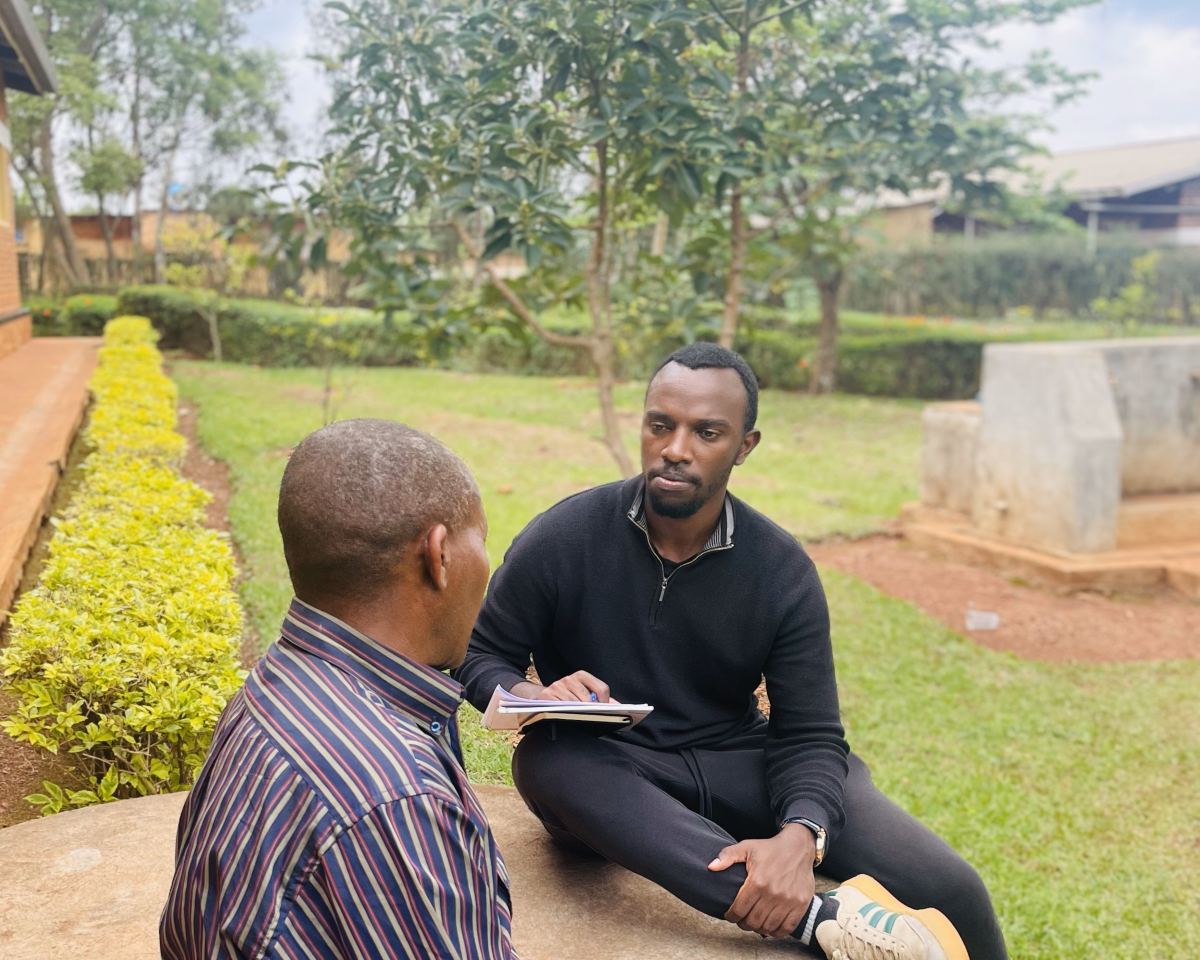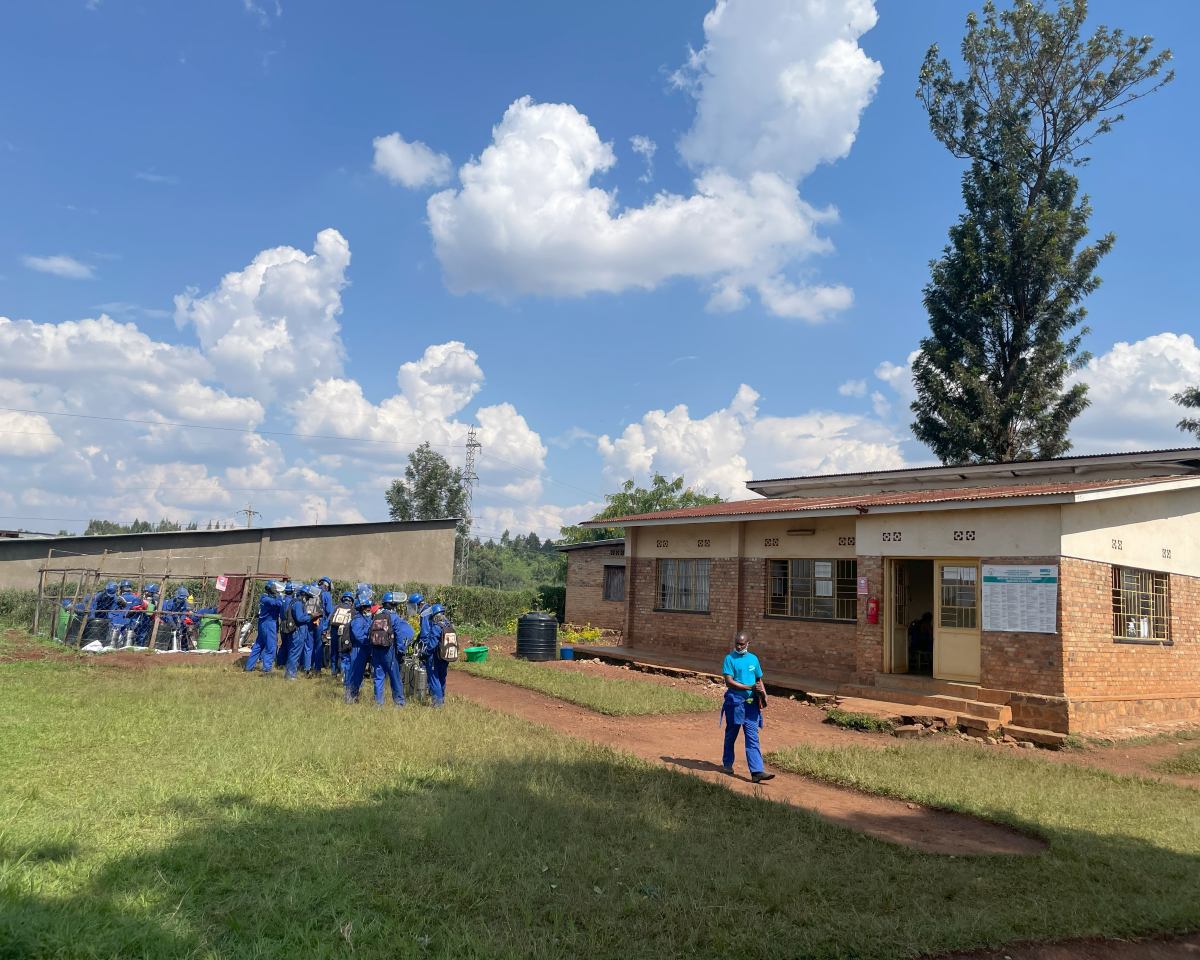During his fieldwork, Sam Muhanguzi conducted an in-depth study of mental health care delivery in rural Rwanda. Based in the Rwinkwavu catchment area with support from Partners In Health (PIH), Sam focused on how primary care systems, structural inequalities, and community health workers (CHWs) intersected to shape patient outcomes.
Sam’s research took him to multiple PIH-supported health centers across the Eastern Province. He often timed his visits to coincide with patients’ scheduled mental health check-ins, conducting interviews onsite to better understand how individuals accessed and experienced mental health services at the primary care level. These early site visits also gave him a window into the rhythms of daily life in rural health facilities and the systemic challenges they face.
One major theme that emerged in his fieldwork was the relationship between economic hardship and mental health. While visiting the newly constructed Kabarondo market, a regional hub for trade and community gathering, Sam reflected on the significance of economic revitalization in health outcomes. “Structural poverty is one of the most persistent inequalities people here face,” he noted. “A market like this represents more than just commerce. It’s a step toward economic parity and an important backdrop for understanding how livelihoods influence mental health.”
The connection between social and economic context and patient well-being became a defining feature of Sam’s research. Through ethnographic observation and patient interviews, he developed a social medicine-informed hypothesis: poverty is not just a background condition but a primary contributor to widespread mental health challenges in Rwinkwavu. “A comprehensive approach to care must address both clinical and social needs,” he wrote in his reflections, “or we risk treating symptoms while ignoring the source.”
As Sam deepened his engagement with patients, he became increasingly interested in the role of CHWs, many of whom are women, in supporting individuals with mental health conditions. Inspired by stories from patients themselves, Sam conducted a focus group discussion with CHWs in the Nyamirama sector. He learned about their work tracing individuals in need of care, escorting them to facilities, raising awareness, and providing consistent psychosocial support. “They do so much more than I had realized,” he shared. “For some patients, CHWs mean more than their own families. Their compassion and consistency are transformative.”
In another visit to the Centre de Santé Nyamirama, Sam spoke with a patient who had regained stability and social connection through access to primary-level mental health services. Despite ongoing struggles with unemployment and poverty, the patient described how treatment had improved not only his health but also his sense of dignity and productivity.
In his final weeks of data collection, Sam partnered closely with his research assistant, Anathalie, a clinical psychologist with deep experience managing mental health programs in rural Rwanda. Together, they completed interviews and focus groups, organized data, and synthesized findings that now inform Sam’s thesis. He credits Anathalie’s insight and expertise with enriching the study’s reach and depth.
Sam’s fieldwork illustrated the complexity and promise of delivering mental health care in resource-limited settings. His work highlighted the importance of integrating medical, social, and economic approaches and emphasized the indispensable role of CHWs in bridging these domains. By listening closely to patients, walking alongside providers, and observing the structures that shape care, Sam developed a nuanced understanding of what makes health delivery truly effective: it’s not just about access, but about dignity, support, and a shared commitment to healing.

![Research Assistant [Anathalie] and myself after concluding the data collection process this past November. She helped a lot in data collection and organization of the interviews both in-depth and the FGDs. She’s a Clinical Psychologist with extensive experience as a practitioner and program manager of a mental health delivery project in rural remote Rwanda.](/sites/default/files/media/muhanguzisam3.jpg)
